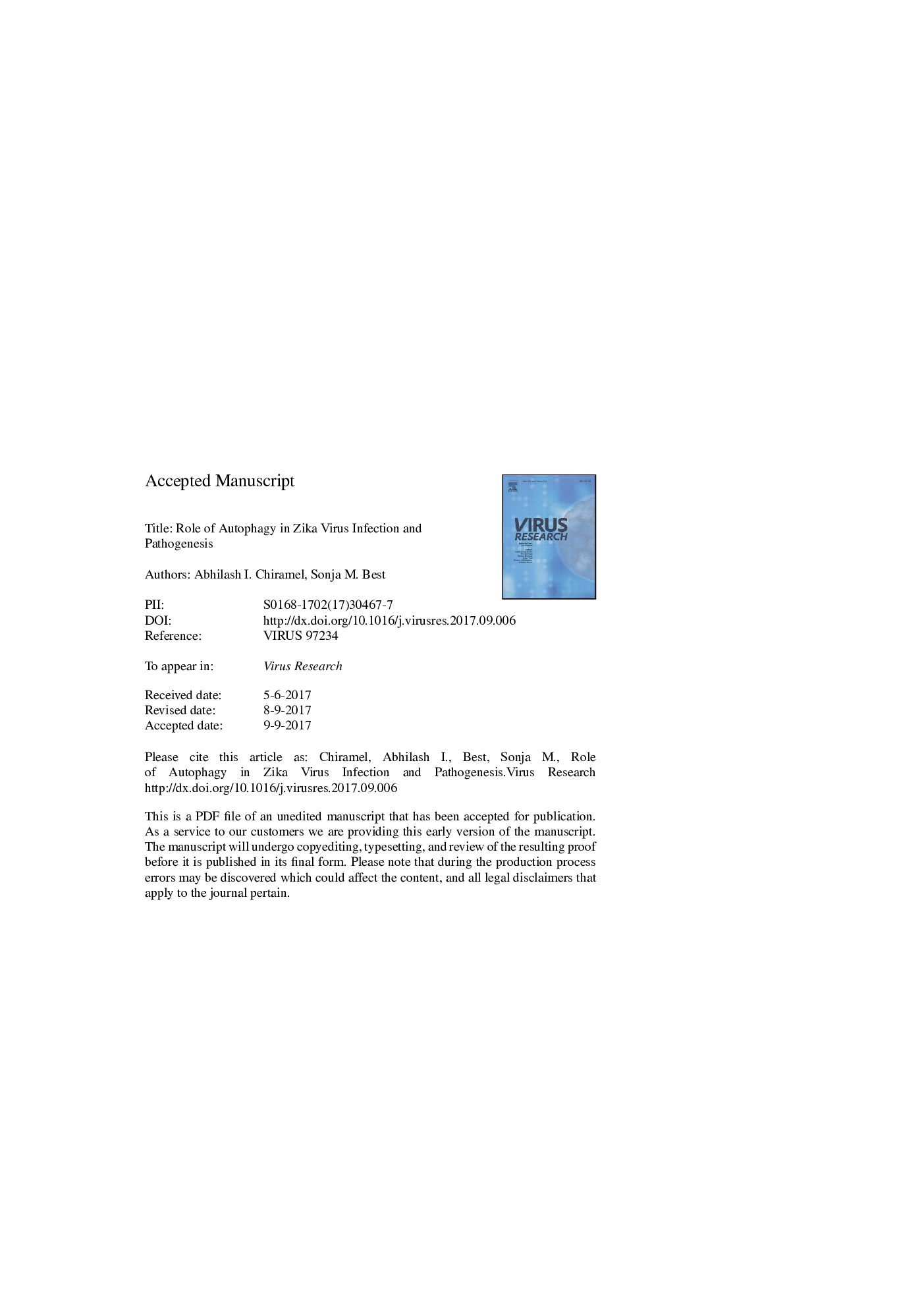| کد مقاله | کد نشریه | سال انتشار | مقاله انگلیسی | نسخه تمام متن |
|---|---|---|---|---|
| 8751706 | 1594303 | 2018 | 22 صفحه PDF | دانلود رایگان |
عنوان انگلیسی مقاله ISI
Role of autophagy in Zika virus infection and pathogenesis
ترجمه فارسی عنوان
نقش اتوفایگی در عفونت ویروس زیکا و پاتوژنز
دانلود مقاله + سفارش ترجمه
دانلود مقاله ISI انگلیسی
رایگان برای ایرانیان
موضوعات مرتبط
علوم زیستی و بیوفناوری
ایمنی شناسی و میکروب شناسی
ویروس شناسی
چکیده انگلیسی
Autophagy is an evolutionarily conserved cellular pathway that culminates in lysosomal degradation of selected substrates. Autophagy can serve dual roles in virus infection with either pro- or antiviral functions depending on the virus and the stage of the viral replication cycle. Recent studies have suggested a role for autophagy in Zika virus (ZIKV) replication by demonstrating the accumulation of autophagic vesicles following ZIKV infection in both in vitro and in vivo models. In human fetal neural stem cells, ZIKV inhibits Akt-mTOR signaling to induce autophagy, increase virus replication and impede neurogenesis. However, autophagy also has the potential to limit ZIKV replication, with separate studies demonstrating antiviral roles for autophagy at the maternal-placental-fetal interface, and more specifically, at the endoplasmic reticulum where virus replication is established in an infected cell. Interestingly, ZIKV (and related flaviviruses) has evolved specific mechanisms to overcome autophagy at the ER, thus demonstrating important roles for these autophagic pathways in virus replication and host response. This review summarizes the known roles of autophagy in ZIKV replication and how they might influence virus tissue tropism and disease.
ناشر
Database: Elsevier - ScienceDirect (ساینس دایرکت)
Journal: Virus Research - Volume 254, 2 August 2018, Pages 34-40
Journal: Virus Research - Volume 254, 2 August 2018, Pages 34-40
نویسندگان
Abhilash I. Chiramel, Sonja M. Best,
